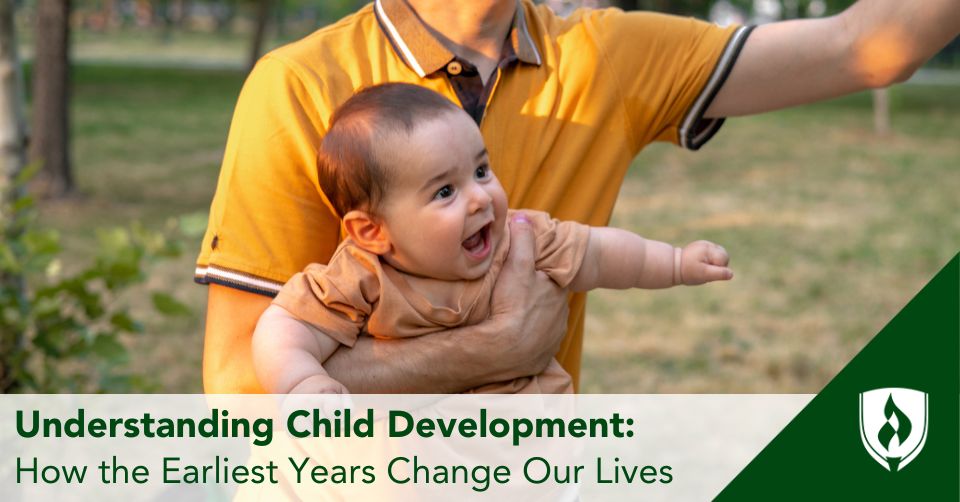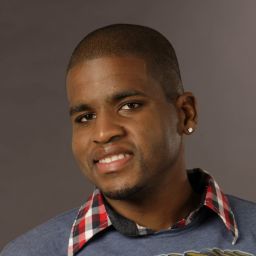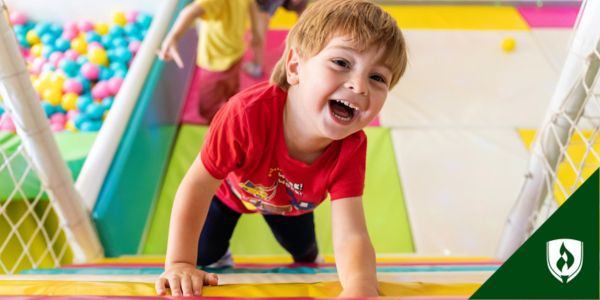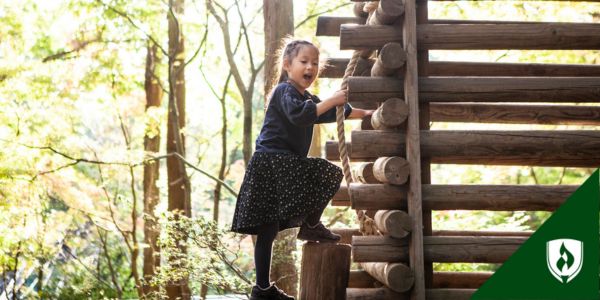Understanding Child Development: How The Earliest Years Change Our Lives
By Karl Hyppolite on 08/14/2025

The first years of life are filled with tiny moments that shape who we become. From a baby’s first smile to a toddler’s first steps, every stage of growth builds the foundation for future learning, relationships and health. This process is what experts call child development.
But child development is more than just reaching milestones like walking or talking. It’s a complex mix of physical, emotional, cognitive and social growth. As children grow, their brains form connections that affect how they learn, solve problems and connect with others later in life. These early experiences can influence everything from school success to lifelong health.
A child's ability to play with other children, for example, makes a huge difference in their learning, both physically and emotionally. Most children will absorb much from the kiddos around them and interact in ways that develop everything from fine motor skills to communication.
Physical development is only one part of the complex and beautiful blooming children do at these ages.
Understanding how children develop helps parents, caregivers and educators support healthy development at every stage. While every child grows at their own pace, knowing what to expect can make a big difference in how we guide and support them.
Why early childhood development matters
The earliest years of a child’s life are some of the most important for building a strong foundation. During early childhood development, a child’s brain grows faster than at any other time. In fact, by age 5, a child’s brain has already reached about 90% of its adult size.1 This period is filled with rapid brain development as children form millions of connections that support learning, memory and emotional growth.
At the same time, social-emotional development is happening. Children begin to form relationships, understand emotions and learn how to interact with others. These early experiences shape how a child handles challenges, builds friendships and develops confidence later in life.
Cognitive growth is also moving quickly during these years. As young children explore their world, they build problem-solving skills, language abilities and critical thinking. These early skills are the building blocks for healthy development, school success and even lifelong health.
When children have positive experiences, strong relationships and supportive environments in the early years, it sets them up for better well-being throughout their lives.
The first year: rapid brain growth begins
During an infant’s first months, brain development is working at full speed. Infants begin to recognize voices, focus their eyes and respond to familiar faces. Simple actions like smiling back at a caregiver or following a moving object with their eyes are early signs of how quickly their brain is learning.
“At birth, a baby’s brain has most of the neurons it will need in the child’s lifetime,” says Rasmussen Assistant Professor of ECE, Joni Kuhn.
“In the early years, the brain starts developing trillions of synapses (connections)... The more connections and activity neurons have, the more the dendrites can grow and branch out, which helps with learning and memory.”
This foundational brain growth supports early movement, sensory exploration and the beginning of emotional connection. “The areas of the brain responsible for vision, hearing and motor skills develop very quickly,” Kuhn says, “which supports early milestones like focusing, crawling and grasping objects.”
Language development also starts earlier than many realize. Long before babies speak their first words, they are learning by listening to the sounds, tones and rhythms of people talking around them.
“Children learn voice tone and pitch, patterns, cadence,” Kuhn notes, “all of which contribute to language development. High quality early interaction is critical for vocabulary, comprehension, and future literacy skills.”
The toddler years: building language, emotions and independence (ages 1–3)
Between ages one and three, child development moves into high gear. This stage is often called a “language explosion” because toddlers go from saying a few simple words to forming short sentences and expressing their needs, wants and feelings.
As language development progresses, toddlers also start building early problem-solving skills. They experiment with their environment—stacking blocks, opening drawers or figuring out how to climb onto the couch. Each small success strengthens their growing brain and helps lay the foundation for cognitive development.
At the same time, toddlers are beginning to experience big emotions. Frustration, excitement and even fear show up more often, and learning emotional development becomes part of their daily life. They rely on caregivers to help them name and manage these feelings, building early self-regulation and social interaction skills that will shape their future relationships.
Every child reaches these developmental milestones at their own pace.
“We can put two children together who were born on the same day and year, and they are going to be different in most ways,” says Kuhn. “There is a range for the timing of when children will meet developmental milestones.” Kuhn adds that the milestones aren’t on a completely identical path from child to child and evaluating a little one’s progress is more complex than checking off some boxes based on their age.
Intentional observation, therefore, plays a key role in supporting children at this stage.
“Without observations, educators will miss key insights, such as children’s interests, developmental needs and learning preferences,” Kuhn explains. “These are essential for effective teaching and helping children reach their full potential.”
Preschool years: learning through play and social interaction
The early childhood years between ages three and five bring huge leaps in growth.
Preschoolers gain early learning experiences through play that build important life skills at the same time.2 Pretend play, building blocks, drawing and group activities help children practice problem solving, sharing, cooperation and following directions.
This is when social and emotional development takes center stage. Children begin to manage emotions more effectively and develop friendships. They start learning how to work through conflicts, understand others’ feelings, and develop empathy. Positive responsive relationships with parents, teachers, and peers give children the support they need to practice these skills safely.
Academically, cognitive growth continues as children learn letters, numbers, colors, and shapes. These are the building blocks for early learning that support literacy foundations and prepare children for success in kindergarten and beyond.
"High quality early interaction is critical for vocabulary, comprehension, and future literacy skills,” says Kuhn. “Although many adults think babies or young children ‘can’t understand,’ the more we talk to them from day one, the more they learn from our modeling of language and conversation."
During this stage, it’s also important to watch for early signs of emotional stress that may require extra support.
“All kids would benefit from an early intervention that teaches coping skills, emotional regulation and emotional expression,” according to Erin Clark Benedict, MSW, LCSW and instructor in Rasmussen’s Human Services program.
“It is only going to strengthen parental confidence, reinforce strengths and give a space to identify small improvements that would help support the child.”
Elementary years and beyond: laying the foundation for lifelong learning
As children enter elementary school, development continues at a steady but meaningful pace. The skills built during early childhood now serve as the foundation for future learning in school and life.
In these years, early learning starts to shift toward academic content. Children develop stronger reading comprehension, math skills and general content knowledge across subjects like science, history and writing.3 As they master these skills, they build self-confidence in their ability to learn, explore and solve problems.
At the same time, executive function skills continue to grow. Children become better at focusing attention, following multi-step directions, managing time and handling more complex responsibilities. These mental skills allow them to stay organized, plan ahead and complete assignments, all of which contribute to future learning success.
Socially, children are also developing more advanced peer relationships. Friendships deepen, and children begin to navigate more complicated social situations. Their ability to resolve conflicts, show empathy, and work in groups continues to expand. Emotional support from family members, teachers and trusted adults remains important in helping them build resilience and handle challenges as they grow.
“Children are not born with emotional regulation skills,” Benedict explains. “They have to be taught.” This is something many parents, and even early childhood education professionals forget. When a child is upset, throwing a tantrum or having a meltdown, they need us to teach them what to do—not just how to behave, but how to help themselves calm down—what to do with all their big feelings.
Taking the time to work through this with your little ones is so important!
“When they learn emotional regulation skills early and practice often, they develop resilience, problem-solving skills and healthy self-esteem,” Benedict says. “Teaching these skills before outbursts become patterns can significantly change a child’s trajectory.”
Early experiences shape lifelong health and well-being
Child development doesn’t just affect how children do in school. It can influence their physical and emotional health for years to come. Research shows that the brain is highly sensitive to early experiences, especially in the first few years of life.4 These experiences shape how the brain develops and how children learn to respond to stress, build relationships, and care for themselves over time.
A safe, supportive environment helps lay the foundation for strong emotional development and lifelong well-being. This includes things like stable routines, access to healthy food, time to play and caregivers who respond with warmth and consistency. These early relationships create a sense of safety and trust that supports mental health and resilience.
“Early childhood experiences are the foundation for our functioning, especially relating to mental health, emotional regulation and relationships,” says Benedict. “When individuals have healthy attachment relationships with a caregiver who is gentle, nurturing and responsive to needs, babies develop an inherent sense of trust in the world.”
On the other hand, trauma or chronic stress during early childhood can have lasting effects. Without emotional support or protective relationships, children may struggle with anxiety, self-regulation, or relationship challenges well into adulthood.
“Multiple experiences of trauma can heighten their impact,” Benedict adds. “When all you know is trauma and chaos, the world becomes a much darker place.” But with the right care, even children who face adversity can grow and thrive.
The role of early childhood practitioners and caregivers
Behind every developing child is a team of caring adults, including parents, caregivers, early childhood practitioners and sometimes healthcare providers, all working together to support healthy growth. These relationships are at the heart of early childhood development. They provide the safety, encouragement and guidance that help young children build skills, confidence and resilience.
Trained caregivers can observe development, spot concerns early and adapt their approach to meet a child’s needs, making a lasting impact. When early intervention is needed, these professionals often play a key role in identifying challenges and connecting families to support.
That said, family members are the core.
Everything from reading bedtime stories to helping children name emotions contributes to brain development and emotional well-being. With support and guidance, families become the most powerful advocates in a child’s life.
“Be patient. With yourself and your children,” says Benedict.
“Kids’ brains are still very much under construction. If you want your child to show you respect, show them respect,” Benedict explains. “While they won’t always get it right, they’ll learn from how we model it.”
This kind of respectful, intentional care—whether from a parent, teacher or therapist—fosters resilience, emotional regulation and a strong foundation for learning. And the earlier those supports are in place, the more impact they can have.
Small moments grow into big outcomes
Child development isn’t shaped by one big moment. It’s really built through thousands of small ones. Every song sung at bedtime, every encouraging word during a tantrum, every game of peekaboo or trip to the park contributes to how young children develop. These everyday interactions help build the foundation for healthy development, lifelong learning and emotional well-being.
Understanding child development gives parents, caregivers and educators the tools to be more intentional in those small moments. When we know how children learn and grow, we can respond with care, patience and support—even when things are challenging.
The early years move quickly, but the impact lasts a lifetime. This is why early childhood education is so vital. A short burst of time in the beginning truly sets the stage for the rest of our human lives.
Every effort to support a child’s growth makes a difference. Because in the world of child development, the little things are never really little.
It’s a huge deal, not just for each individual child, but for society as a whole. To see what I mean, check out 5 Reasons the Importance of Early Childhood Education Is Impossible to Ignore.
1Richard Batcheler,03/04/2023, Early childhood and the developing brain https://centreforearlychildhood.org/news-insights/case-studies/early-childhood-and-the-developing-brain/
2Centers for Disease Control and Prevention, Positive Parenting and Child Development: https://www.cdc.gov/child-development/positive-parenting-tips/preschooler-3-5-years.html
3Centers for Disease Control and Prevention, Positive Parenting and Child Development: https://www.cdc.gov/child-development/positive-parenting-tips/middle-childhood-6-8-years.html
4Tierney AL, Nelson CA 3rd. Brain Development and the Role of Experience in the Early Years. Zero Three. 2009 Nov. https://pmc.ncbi.nlm.nih.gov/articles/PMC3722610/#S13




